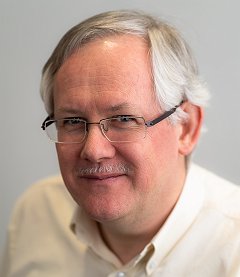As the complexity of Cyber-Physical Systems (of Systems) we build grows, the need for an elegant theory, and methods, techniques and tools to tackle that complexity increases. This talk gives a very personal and anecdotal overview of some attempts to tackle the complexity of engineered systems by explicitly “modelling everything” (that is relevant, at some point in time) by means of “most appropriate” views, architectures, and workflows, and this for all phases of the system life-cycle such as system requirements, design and deployment/realization. To represent each of these views, architectures and workflows, we use models, at “most appropriate” levels of detail/abstraction/fidelity, using “most appropriate” modelling languages (formalisms). This appropriateness is of course highly subjective and depends on the application domain, the background of the modeller, availability of tools, etc. A major challenge is the heterogeneity in domain silos, in modelling abstractions and formalisms, and in particular how to combine these. Even for this challenge, as well as for the construction of supporting editing, simulation, debugging, … tooling, using “most appropriate” abstractions and formalisms turns out to be beneficial. This talk will both look back at past challenges and solutions and will try to extrapolate “most appropriate modelling” into a future where dealing with “change” plays a central role.
| Presentation (23.10.06.keynote[71].pdf) | 9.90MiB |
Hans Vangheluwe is a Professor in the Computer Science department at the University of Antwerp in Belgium. He leads the Modelling, Simulation and Design Lab (MSDL), which is also a core research lab of the Flemish Strategic Research Centre Flanders Make. Earlier, he was with the School of Computer Science of McGill University in Canada.
He publishes in both software engineering and in simulation venues. Some of his contributions are (1) domain-specific visual modelling, simulation and optimization of bio-activated sludge waste-water treatment plants (WWTPs), which has lead to the commercial tool WEST (now part of DHI’s MIKE), (2) work as a founding member of the design team of the language Modelica for the computationally a-causal modelling of physical systems, (3) the development of meta-modelling and model transformation foundations prototyped in the transformation kernel library T-Core (with Eugene Syriani) and the visual modelling tool AToM3 (with Juan de Lara), later followed by AToMPM and the Modelverse, (4) the specification of contracts for and the symbolic analysis of model transformations using SyVOLT, and (5) the development of efficient real-time and distributed simulators such as PythonPDEVS.
In a variety of projects, often with industrial partners, he now develops and applies the theory, techniques and tools for Multi-Paradigm Modelling. He currently applies his work mostly in the following application domains: mechatronics (with Siemens SISW and Flanders Make), (embedded systems in) automotive (in the Automotive Partnership Canada NECSIS project, with GM Research, IBM and Malina), and modern computer games. 2015 - 2018, he chaired the European COST Action 1404 on Multi-Paradigm Modelling for Cyber-Physical Systems (MPM4CPS).
His most recent interests are in modular modelling language composition (with a focus on semantics), on co-simulation, and on the explicit modelling and optimization of concurrent Model-Based Systems Engineering processes (a.o., dealing with inconsistencies and with early-stage collaboration in inter-disciplinary teams).
Fri 6 OctDisplayed time zone: Amsterdam, Berlin, Bern, Rome, Stockholm, Vienna change
08:45 - 10:00 | |||
08:45 15mDay opening | Announcements MODELS | ||
09:00 60mKeynote | A "most appropriate” Talk MODELS Hans Vangheluwe University of Antwerp and Flanders Make File Attached | ||
